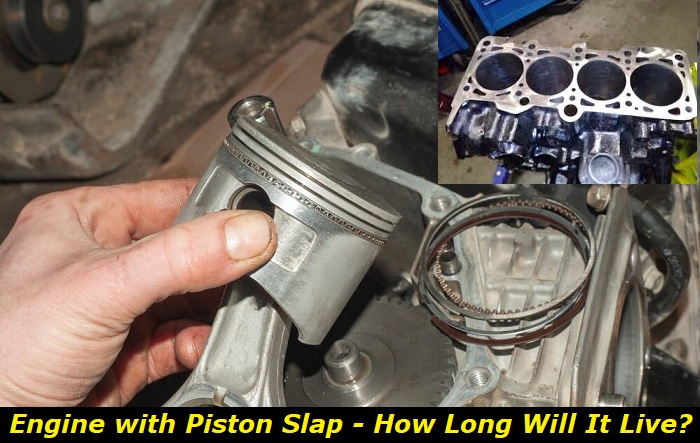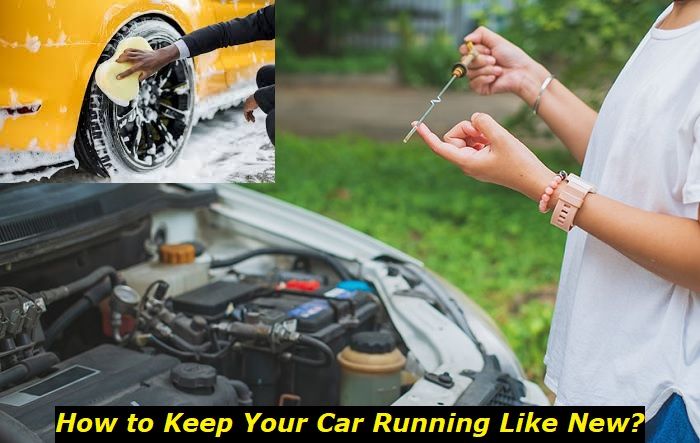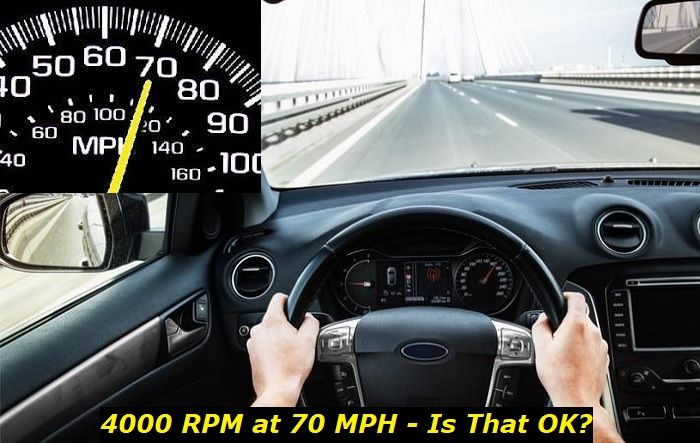Does your engine have a piston slap? If you're wondering how long it will last or what repairs are in the future, then keep reading. This article explains precisely what piston slap is and its potential impact on the longevity of your vehicle.
Engine noises highlights
- Level of importance:High
- Commonreasons:All kinds of various problems, hard to list promptly
- DIY inspection:Possible but may be complicated
- DIY repair:Impossible, in most cases
- Price for repair:$150 - $1,000
- Can you drive?Usually, yes
- Ways to fix:Locate the source for the sound and repair the system that needs help

What Causes a Piston Slap?
Piston slap, a troubling phenomenon caused by several potential issues, is most frequently induced by worn-out piston rings that cannot properly seal the combustion chamber and keep oil out. Other probable causes of this problem include piston skirt wear, mismatched cylinder head/piston clearances, extended running time at high revs, or an inadequate lubrication system, as well as contaminated fuel.
In addition to the abovementioned causes of piston slap, a worn camshaft lobe or lifter can also cause it. If the follower and lobe are not aligned correctly or if they're in contact for too long, this will result in pistons impacting against bore walls with each rotation. A broken timing chain may give you similar indications as well!
Sadly, some engine designs suffer from an inherent defect that results in excessive piston movement within its respective bore - leading to knocking sounds and degradation of performance over time. Recognizing these issues is necessary if you want to ensure the longevity and consistent performance of your engine.
Diagnosing piston slap can be a tricky endeavor, as its sound resembles other engine issues, such as valve train noise and worn bearings. As such, for an accurate diagnosis to take place, a mechanic needs to perform a thorough examination of both the cylinder head and piston assembly.
When checking for signs of wear or damage on these parts, including pistons and rings plus cylinder walls, among others - if they are found to not be seating correctly or have already sustained too much damage, then they should be replaced.
The technician could be required to alter the cylinder head and piston clearances, switch out a worn camshaft lobe or lifter, as well as mend any timing chain issues. By tackling the root of the problem, you can get rid of piston slap and bring back engine performance in no time!
How Long Will Engine Last with a Piston Slap?
When it comes to predicting the longevity of an engine with a piston slap, one must consider the severity. If only one cylinder is involved and there's not much damage, then you may be able to keep your car running for quite some time. However, if multiple cylinders have been impacted by this issue, it would be best to either rebuild or replace your engine as soon as possible in order to avoid any further costly repairs down the road.
Maintenance plays an essential role in the longevity of your car; some engines have been reported to run over 100,000 miles with piston slap. Whereas others are unable to make it past 30,000-40,000 miles without self-destructing. Ultimately you can influence how far your engine will take you - simply by taking proper care of it!
It is not uncommon for a new engine to have a piston slap, as the pistons may need some time to expand in order to function properly. If this type of noise disappears after a period of use, then there's no reason your engine won't reach its normal lifespan without any major problems. But if the slapping sound persists and does not cease with continued use, you should take action quickly by either repairing or replacing it promptly - otherwise, further damage could occur down the line.
No matter what, you should always contact a professional mechanic to inspect the engine and diagnose any piston slap concerns promptly in order to avoid further deterioration. It is worth stressing that running an engine with excessive piston slap can lead to significant damage and greatly reduce its lifespan.
How to Identify If It Is a Piston Slap or Something Else?
If you suspect your car of having a piston slap, be mindful of the tell-tale signs. Usually, a loud knocking noise emits from the engine when it is either running idle or accelerating; this sound grows louder with more speed and can become quite audible at faster speeds. Alongside that, other symptoms, such as decreased power output and oil leakage, may also occur in combination with elevated fuel consumption.
What Issues Are Associated With A Piston Slap?
When your car has a piston slap, the most common issues are loud engine noise or rattling while accelerating and decreased fuel economy. Furthermore, incomplete combustion of fuel may result in visible smoke coming out of the tailpipe as well as increased exhaust emissions due to poor combustion efficiency. A piston slap can cause reduced performance and reduce a vehicle's life span.
Piston slap should not be ignored as it may result in damage to other parts of your engine. Oil leaks near the crankcase can occur due to heightened maximum oil pressure, which could cause vital components such as bearings, seals, and gaskets to fail prematurely if left unchecked.
Prevention Strategies for Avoiding Piston Slap
To guarantee the flawless performance of your engine, regular maintenance is essential. It's paramount to routinely check and change the oil with one that meets the manufacturer's prescribed specifications. Moreover, ensure you always use the specified type of oil for your car, as some vehicles require synthetic or semi-synthetic blends to keep them running at peak capacity and avoid piston slap.
Regularly inspecting the spark plugs, valve lash, and piston rings and ensuring a clean fuel system with fresh air filters are all essential for maintaining your engine's longevity. By taking these steps, you can reduce wear on key components and prevent premature damage to your engine from unwelcome surprises such as a piston slap!
To protect your engine from wear and tear, try to avoid driving aggressively or running it at high speeds for too long. Allow the vehicle some downtime on occasion and provide an opportunity for your car's motor to cool off after a period of intense acceleration or steep inclines. Taking these steps will minimize the burden placed on internal components that may result in problems such as piston slap over time.
The Cost of Repairing Piston Slap
The only solution to a piston slap is an engine rebuild. This involves unbolting and replacing or repairing any obsolete part of your automobile's engine, such as pistons, rings, valve stem seals, and more. But the cost for such a repair varies significantly based on the car type and how much labor requires - it can range from hundreds to thousands of dollars!
Is It Okay To Drive With A Piston Slap?
In general, you can drive a car with a piston slap without any major issues. You might be irritated by the noise and see a slight decrease in fuel economy, but it won't cause any serious harm to your car. To reduce the noise, you can use thicker oil and warm up your engine before driving.
Bottom Line
Though piston slap can be an irritating problem, it doesn't necessarily mean you require an entirely new engine. By performing some preventative maintenance and being mindful of your driving habits, you can help keep your car in optimum condition while elongating its motor's life. But if the issue persists, make sure to have a professional mechanic assess your engine right away so as to guarantee its efficient functioning for longer. Through these steps, you can ensure that your car's performance is maximized and secure the longevity of your investment.
About the authors
The CarAraC research team is composed of seasoned auto mechanics and automotive industry professionals, including individuals with advanced degrees and certifications in their field. Our team members boast prestigious credentials, reflecting their extensive knowledge and skills. These qualifications include: IMI: Institute of the Motor Industry, ASE-Certified Master Automobile Technicians; Coventry University, Graduate of MA in Automotive Journalism; Politecnico di Torino, Italy, MS Automotive Engineering; Ss. Cyril and Methodius University in Skopje, Mechanical University in Skopje; TOC Automotive College; DHA Suffa University, Department of Mechanical Engineering





Add comment